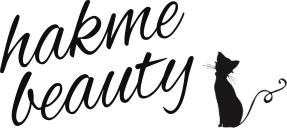
I got these books from eslite bookstore and they were on the best selling chart. At first, I didn’t think they were really relevant to me because I don’t go to school anymore but then I thought “they are on the best selling chart for a reason, maybe I should give them a go!” I am glad that I did. They are written by a Japanese brain doctor, so they are not only based on “experience” but they are also based on “scientific facts” about how the brain works.


The blue one is called Input, so it’s about learning and the white one is called Output, and it’s about outcome. I am not going to review them separately and say which one you should read and which one you should not. I think learning and having the right outcome/ personal growth comes hand in hand and so I would recommend reading both, preferably Input first and then Output. I think both are useful if you are a student and you want to understand how you can effectively remember what you learn (Input) and how to have more ideas for your home work and projects (Output); or you are working and are interested in personal growth.
The books are divided into many small chapters (mostly two pages), so the read was very enjoyable and I could pick up the books here and there for 5-10 mins just to read a bit if I don’t have too much time on hand. Also, though they are written by a Japanese doctor, the language used is very layman and easy to understand. There are no big philosophy or too many technical process of how the brain works. They are more like “oh the brain actually cannot process 3 things in one go” and the experiment done was “blah blah blah”. This definitely makes the books more approachable!
I think if you have followed me for awhile, you get the idea that I am huge on lifelong learning, but I am not the type of person who enjoys going to school or classes. I like decoding things on my own and I like finding my answers in books. Basically long story short, I like self-learning! One issue with self-learning is: yes you might read quite a few books every month or read a lot of online materials, but you will forget almost everything in a short space of time. And sometimes I would look at the same book and wonder if I have read that in another parallel universe LOL! These two books teach me to do output (recapping what I learn in a notebook) while I am learning. The blue book says “do output 3 times within the next two weeks after you learn something” and it would help the information sticking in the memory lane of the brain! The output style could be writing it in a notebook, sharing your views with a friend or even blogging (well here I am), and all of them are achievable. Interesting right? When I was reading that, It was an Ah-Ha moment for me! I didn’t do any output while or straight after I do the input, no wonder not many things sticks LOL.
As for my biggest take-away from the Output book is “journaling is a form of output” as well. You know I have been trying to get into journaling for a good while, but unless I have a good reason to do something, I seldom could put the heart and soul into it and journalling is kind of like that to me. Sitting at the desk every night to write about the day when for the past 2.5 years were basically “blank” (I feel like we are merely existing instead of living due to Covid) doesn’t appeal to me that much (not to mention I have quite a fair share of major personal losses which I don’t even want to remember). When the author explains that journaling helps to decrease stress and benefit personal growth, I am excited. In a way, it’s not simply writing about the day, yea part of the output process is “write about the day”; but also another part is “to review the day”. Now that tickles my fancy! To review objectively what could be better, what makes me happy, what is not important and not urgent, now that sounds like the personal growth that I am after. So guess what, I am going to try this and then see how it goes.
Another life-changing take-away from the two books is that now I keep a “Reading Journal”. I would write down:
- Book Title and Author
- What is the book about
- Ratings
- A small passage of how I feel in general about the book
- At least 3 take-aways/ action points learnt from the book
Keeping this Reading Journal is part of the Output process but it also helps to keep track of what books I read and how many I read. Most importantly, this forces me to think about at least 3 actionable items from the book that I get to practice or try. There is really no point in reading without taking any action because as much as reading enriches the mind, I am a big believer in action; because the right actions do improve life. So if we make small improvement everyday, imagine the collective improvement you could have after just 365 days, right?
Well, I hope my thoughts and sharing are somehow useful. Are you going to get the books? If you do, please let me know on Instagram (@iamhakme) how you are getting on with the books and whether you enjoy them or not. Gonna love you and leave you now, till next time! Have a great day!!
